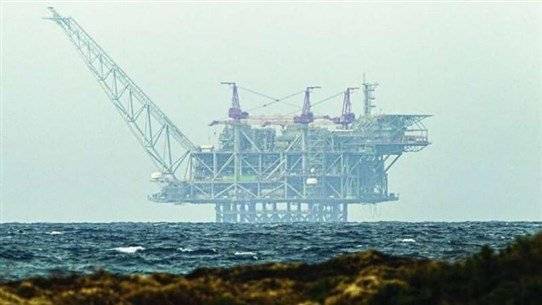The war in Gaza has engulfed the Lebanese scene, which had barely begun to enjoy the rising prospects of a significant breakthrough in the maritime demarcation file with Israel, when it was hit by the "flames" of confrontation between Tel Aviv and the Islamic Jihad Movement, which appears to be armed with dimensions that exceed the "theater of operations" itself.
Informed circles in Beirut interpreted the escalation of violence in Gaza as an "alternative battle," through which Israel seeks a "moral compensation" for the concessions it plans to make in the maritime demarcation file under the pressure of the "spark" of Hezbollah's weaponry, allowing for the restoration of "deterrence" ahead of the legislative elections, while Tehran views it as a "mailbox" either for increasing pressure amid the nuclear negotiations reaching a critical phase or to assert that any revival of the agreement will remain isolated from any concessions in other arenas.
While the "Al-Quds Brigades" named their operation "Uniting the Arenas" in response to the Israeli military operation "Dawn of the Truth," it was notable for these circles that Iran is keen to present itself as the one controlling the "buttons" of the Gaza battle through the reception of the Revolutionary Guard commander, Hossein Salam, who met with the Secretary-General of the Islamic Jihad movement, Ziyad al-Nakhalah, who threatened Israel with a battle "without red lines."
This meeting came two days after Salam announced that Hezbollah possesses "more than 100,000 missiles ready to open the gates of hell on Israel," affirming that "the enemy is on a dead-end path for any military action against Iran." The statement by the commander of the Quds Force in the Revolutionary Guard, Ismail Qaani, that "Hezbollah plans to deal the final blow to the Zionist entity and remove it from existence at the appropriate time and is prepared for a continuous battle to create a real state of attrition for the occupation army" was equally significant.
According to the same circles, it was difficult to separate these statements from the turning point the region has entered in relation to the outcome of the nuclear negotiations and the maritime demarcation issue between Lebanon and Israel. Hezbollah has taken the lead on this front after it set a "military" scenario - with the three drones over the Karish field being the "first of many" - establishing a diplomatic framework for the Lebanese state and a timeline for Israel to meet Beirut's demands, which information accompanying and following the visit of the American mediator Amos Hochstein last week suggested were close to being fully met in the disputed area (860 square kilometers) with American guarantees related to Lebanon's entitlement to the additional part of the Qana field south of Line 23.
Simultaneously, in recent hours, there have been atmospheres suggesting hesitation or a slowdown in Tel Aviv regarding the prevailing mood of acceptance of Lebanon's demands, which was prefaced by the notion that the alternative is a war that Israel does not want, and that new delays might loom on the horizon. The circles questioned the repercussions of the Gaza battle, which is likely to spill over into the demarcation file, in such a way that any escalation leading to "scars" on Israel's "prestige" could push for a tougher stance regarding granting Beirut everything it requested in the demarcation, while regaining the initiative concerning Israeli domestic matters from the "fire theater" of Gaza might compensate for the forced maritime concessions, unless Iranian calculations necessitate dragging Tel Aviv into an attrition war.
While the circles reminded that these intense atmospheres intersect with assessments that Hezbollah would elevate the pressure on Israel regarding the demarcation file leading up to September and gradually "heat the arena" starting from mid-month, against the backdrop of the head of Hezbollah's Executive Council, Hashem Safi al-Din's remarks that "the attempts of the enemies to prevent the resistance from acquiring strategic weapons that break the balance have failed and the resistance has obtained these weapons, and the enemy could do nothing to deter," Beirut received diplomatic reports from Arab sources talking about the possibility of Hezbollah participating in military operations in line with what is happening in Gaza.
However, it was revealed that one of the urgent telegrams that arrived in Lebanon indicated that the narratives regarding the possibility of the northern front participating in what is happening in the "Gaza envelope" and Hezbollah's involvement in the war "are nothing but media scenarios accompanying the Egyptian mediation to stop what is happening in Gaza, coinciding with high-level delegations arriving in Gaza and Israel to arrange a ceasefire, regardless of what is happening in the northern part of the territorial waters of occupied Palestine and the accompanying project to extract oil from the Karish field and market it in early autumn."




